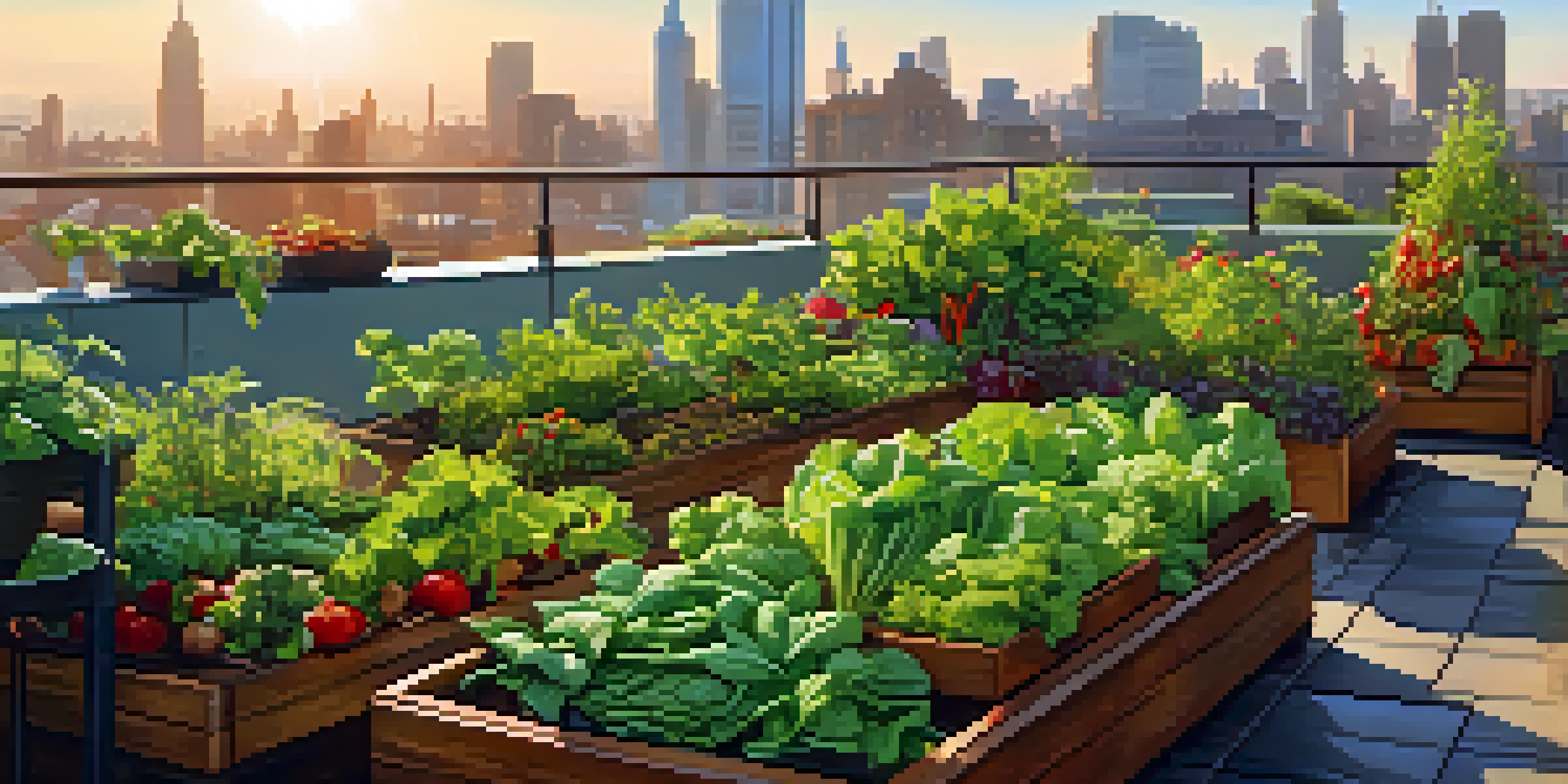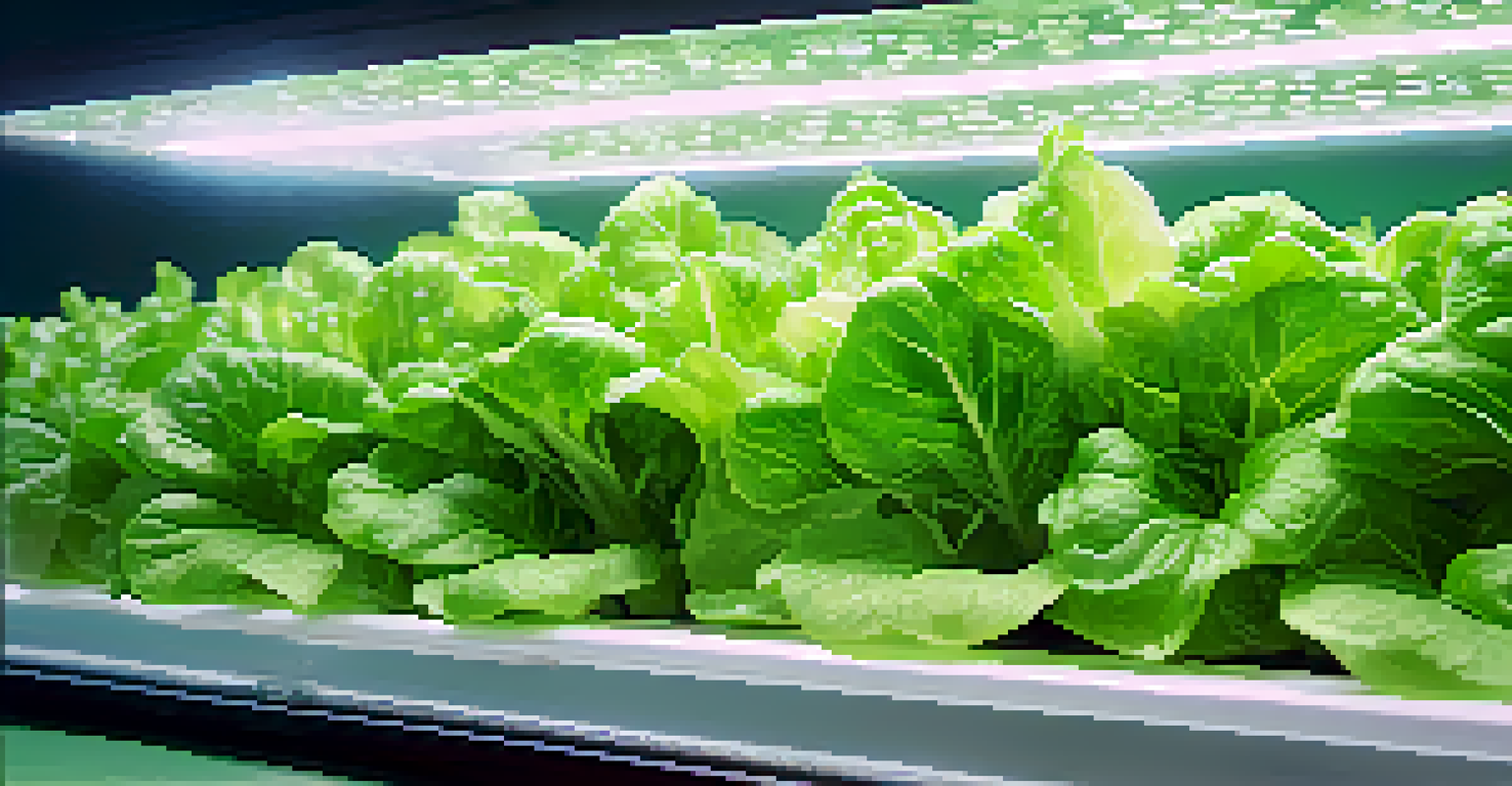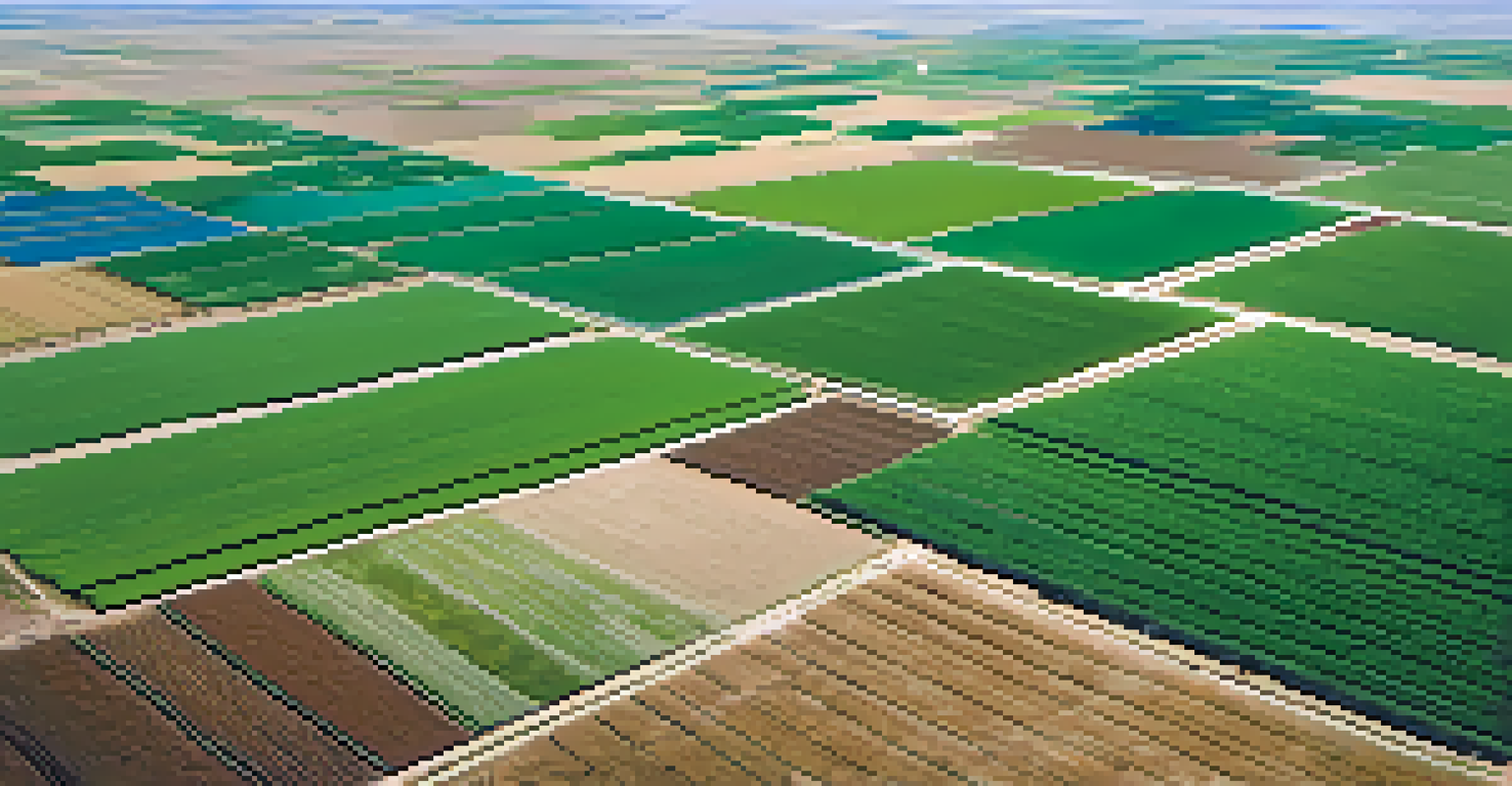The Role of Technology in Modern Food Plant Cultivation

Understanding Modern Food Plant Cultivation Techniques
Modern food plant cultivation has evolved significantly over the years, integrating advanced methods to boost productivity. Traditional farming practices have given way to innovative techniques that prioritize efficiency and sustainability. From hydroponics to vertical farming, these approaches allow us to grow food in urban settings and utilize less land and water.
The future of agriculture is not about farming more land; it’s about farming smarter.
For instance, hydroponics, which involves growing plants in nutrient-rich water instead of soil, has gained popularity due to its minimal resource usage. This method not only conserves water but also enables year-round production, regardless of climate conditions. As cities expand, such techniques become essential for food security.
Moreover, vertical farming utilizes stacked layers of crops, maximizing space and minimizing transportation costs. By harnessing technology, farmers can create controlled environments that optimize growth conditions, leading to healthier plants and higher yields. This intersection of technology and agriculture is reshaping our approach to food production.
The Role of Data Analytics in Farming Decisions
Data analytics is revolutionizing how farmers make decisions about crop management. By collecting and analyzing data on soil quality, weather patterns, and crop health, farmers can tailor their practices to meet specific needs. This data-driven approach helps in predicting yields and optimizing resource use.

For example, precision agriculture employs GPS technology and sensors to gather real-time data about field conditions. Farmers can then apply fertilizers or pesticides more accurately, reducing waste and environmental impact. This means not only healthier crops but also a healthier planet.
Modern Techniques Boost Food Production
Innovative methods like hydroponics and vertical farming are reshaping food cultivation to enhance efficiency and sustainability.
Additionally, farmers can track market trends and consumer preferences through data analysis. This insight allows them to adjust their crop choices accordingly, ensuring they meet demand while maximizing profits. In an ever-changing market, data analytics proves to be a valuable tool for modern cultivators.
Innovations in Irrigation Technology
Irrigation technology has come a long way from simple methods of watering crops. Today’s systems utilize advanced techniques such as drip irrigation and smart sprinklers that deliver water precisely where and when it's needed. This not only conserves water but also promotes healthier plant growth.
The greatest challenge of the 21st century is to produce food for a growing population while preserving our planet’s resources.
Drip irrigation, for instance, allows water to drip slowly to the roots of plants, minimizing evaporation and runoff. This targeted approach ensures that plants receive the right amount of moisture, which is crucial in areas facing drought. As climate change continues to affect water availability, such innovations are becoming increasingly vital.
Smart irrigation systems, on the other hand, use sensors to monitor soil moisture and weather conditions. They automatically adjust watering schedules based on real-time data, reducing water waste and improving efficiency. By embracing these technologies, farmers can ensure their crops thrive even in challenging environments.
Integrating Robotics in Agricultural Practices
Robots are making their mark in modern agriculture, enhancing the efficiency of various tasks. From planting seeds to harvesting crops, robotics technology is streamlining operations and allowing farmers to focus on strategic decision-making. This shift not only saves time but also addresses labor shortages in the agricultural sector.
For example, robotic harvesters can pick ripe fruits and vegetables with precision, reducing damage to the produce. These machines are programmed to identify the right moment for harvesting, ensuring optimal quality and taste. As technology advances, we can expect even more sophisticated agricultural robots to enter the market.
Data Analytics Drives Farming Decisions
Farmers are leveraging data analytics to optimize crop management and resource use, leading to healthier yields and improved profits.
Moreover, drones are also being utilized for monitoring crop health and assessing field conditions. By capturing aerial imagery, farmers can identify issues such as pest infestations or nutrient deficiencies early on. This proactive approach allows for timely interventions, ultimately leading to better crop yields.
Sustainable Practices Through Technology
Sustainability is at the forefront of modern food plant cultivation, and technology plays a crucial role in achieving eco-friendly practices. Innovations such as organic fertilizers, pest management software, and renewable energy sources are helping farmers adopt sustainable methods. These approaches not only benefit the environment but also improve food quality.
For instance, integrated pest management (IPM) utilizes technology to monitor pest populations and recommend environmentally-friendly control methods. This reduces the reliance on chemical pesticides, leading to healthier ecosystems and safer food for consumers. By using data to inform their practices, farmers can make more responsible choices.
Additionally, renewable energy technologies, such as solar panels and wind turbines, are being integrated into farming operations. These sources of energy help reduce carbon footprints and operational costs. As more farmers turn to sustainable practices, technology is proving to be an essential partner in the quest for a greener future.
The Impact of Climate Change on Agricultural Technology
Climate change presents significant challenges to food plant cultivation, but technology is helping mitigate these impacts. As weather patterns become more unpredictable, farmers are turning to innovative solutions to adapt. This includes developing drought-resistant crops and utilizing climate-smart practices.
For example, genetic engineering has led to the creation of crops that can withstand extreme temperatures and limited water supply. These resilient varieties are crucial for maintaining food production in regions severely affected by climate change. By harnessing the power of technology, we can enhance crop resilience and ensure food security.
Technology Supports Sustainable Practices
Advancements in technology, such as smart irrigation and renewable energy, are enabling farmers to adopt more sustainable farming methods.
Moreover, climate monitoring tools provide critical data that helps farmers make informed decisions. By understanding weather forecasts and environmental changes, they can adjust planting schedules and crop selections accordingly. This proactive approach empowers farmers to navigate the uncertainties of climate change effectively.
Future Trends in Food Plant Cultivation Technology
As we look ahead, the future of food plant cultivation is likely to be shaped by emerging technologies. Innovations such as artificial intelligence (AI) and blockchain are anticipated to further enhance farming practices. These technologies promise to improve efficiency, transparency, and sustainability in the agricultural sector.
AI, for instance, can analyze vast amounts of data to provide insights on crop management and disease prevention. By predicting potential issues before they arise, farmers can take proactive measures to protect their crops. This level of insight can lead to higher yields and lower input costs.

Blockchain technology, on the other hand, can enhance supply chain transparency, allowing consumers to trace the origins of their food. This not only builds trust but also encourages responsible farming practices. As these trends unfold, technology will continue to play a pivotal role in the evolution of food plant cultivation.